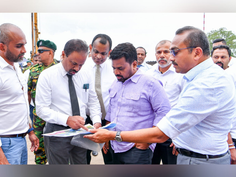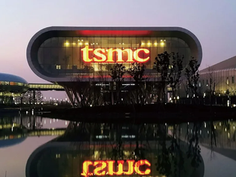Beyond Sleep and Nutrition: The Unconventional Science of Athletic Recovery
- Rahmani Khoshnaw

- May 29, 2025
- 3 min read
Khoshnaw Rahmani, JadeTimes Staff
K. Rahmani is a Jadetimes news reporter covering Sports.

Recovery Is More Than Just Rest—It’s a Mindset
Athletes train their bodies relentlessly, but true recovery isn’t just physical—it’s mental, emotional, and even cultural. While sleep and nutrition are essential, alternative recovery methods—from meditation and breathwork to traditional healing practices—are proving to be game-changers in sports performance.
Elite athletes are now embracing mental conditioning, holistic therapies, and ancient recovery techniques to optimize endurance, prevent burnout, and sharpen focus. The question is: Are you tapping into the full spectrum of recovery?
Let’s break down the unconventional recovery strategies that are reshaping athletic performance.
Mental Recovery: The Hidden Key to Athletic Longevity
A. The Psychology of Recovery
Recovery isn’t just about muscle repair—it’s about mental resilience. Studies show that athletes who prioritize mental recovery experience:
✅ Faster physical healing—stress reduction enhances immune function and tissue repair.
✅ Improved focus and reaction time—mental clarity sharpens decision-making under pressure.
✅ Reduced injury risk—psychological stress increases muscle tension, leading to higher injury rates.
B. Meditation, Visualization & Breathwork
✅ Meditation for Recovery: Helps lower cortisol levels, reducing inflammation and muscle soreness.
✅ Visualization Techniques: Used by Olympians and elite athletes to mentally rehearse movements, improving precision and confidence.
✅ Breathwork for Endurance: Techniques like Wim Hof breathing enhance oxygen efficiency, boosting stamina and recovery speed.
Mental recovery is just as crucial as physical recovery—and athletes who master it gain a competitive edge.
Alternative Healing Methods: Ancient Wisdom Meets Modern Science
A. Traditional Recovery Practices from Around the World
Athletes across cultures have long relied on traditional healing methods to accelerate recovery and enhance performance.
✅ Acupuncture (China): Stimulates blood flow and nerve function, reducing muscle tightness and pain.
✅ Ayurvedic Recovery (India): Uses herbal treatments and oil massages to detoxify muscles and improve circulation.
✅ Sauna Therapy (Nordic Countries): Heat exposure boosts cardiovascular endurance and flushes toxins from the body.
B. The Science Behind Alternative Recovery
✅ Cryotherapy: Exposing the body to -200°F temperatures reduces inflammation and speeds up muscle repair.
✅ Sound Therapy: Vibrational frequencies stimulate cellular healing, improving muscle regeneration.
✅ Float Tanks: Sensory deprivation lowers stress hormones, enhancing mental clarity and recovery speed.
Athletes who embrace alternative recovery methods experience faster healing, better focus, and long-term resilience.
Cultural Perspectives on Recovery: How Different Societies Approach Healing
A. Recovery Rituals in Indigenous Cultures
✅ Native American Sweat Lodges: Used for detoxification and mental clarity, helping athletes reset their bodies and minds.
✅ Japanese Forest Bathing (Shinrin-Yoku): Immersion in nature lowers stress hormones, improving mental recovery and endurance.
✅ African Herbal Medicine: Natural remedies reduce inflammation and enhance muscle recovery.
B. The Role of Community in Recovery
✅ Team-Based Recovery: Studies show that athletes who recover in social settings experience higher motivation and lower stress.
✅ Cultural Healing Practices: Many societies incorporate spiritual and communal recovery rituals, reinforcing mental strength and resilience.
Recovery isn’t just individual—it’s cultural, social, and deeply rooted in tradition.
Recovery Is a Holistic Process, Not Just a Routine
True recovery isn’t just about sleep and nutrition—it’s about mental strength, cultural wisdom, and alternative healing.
Athletes who embrace unconventional recovery methods gain a deeper understanding of their bodies, minds, and performance potential.
Whether it’s meditation, breathwork, ancient healing techniques, or cultural recovery rituals, the future of athletic recovery belongs to those who think beyond the basics.











































Comments